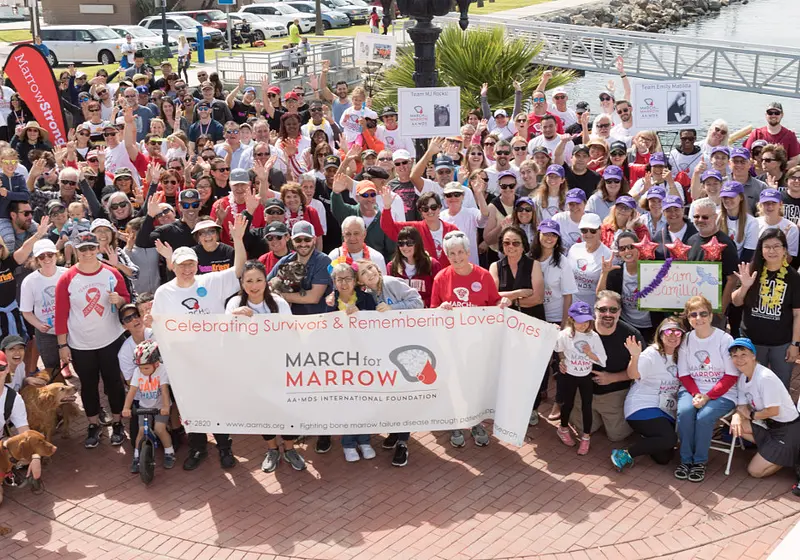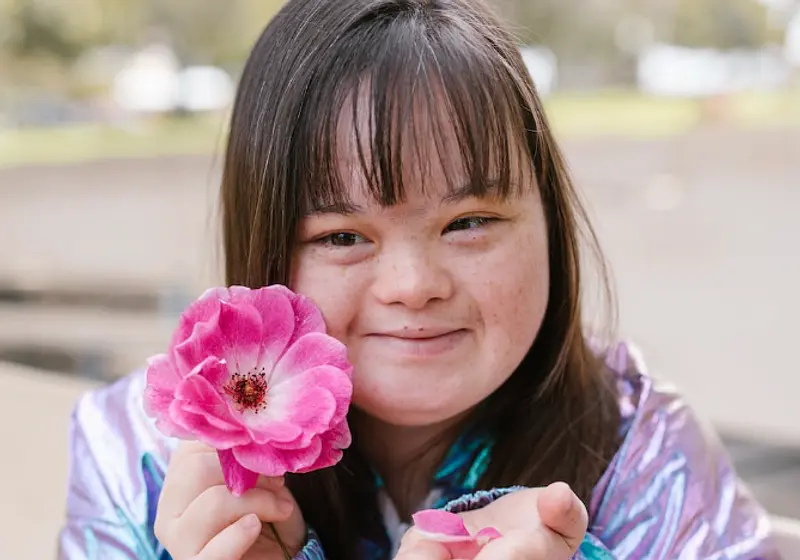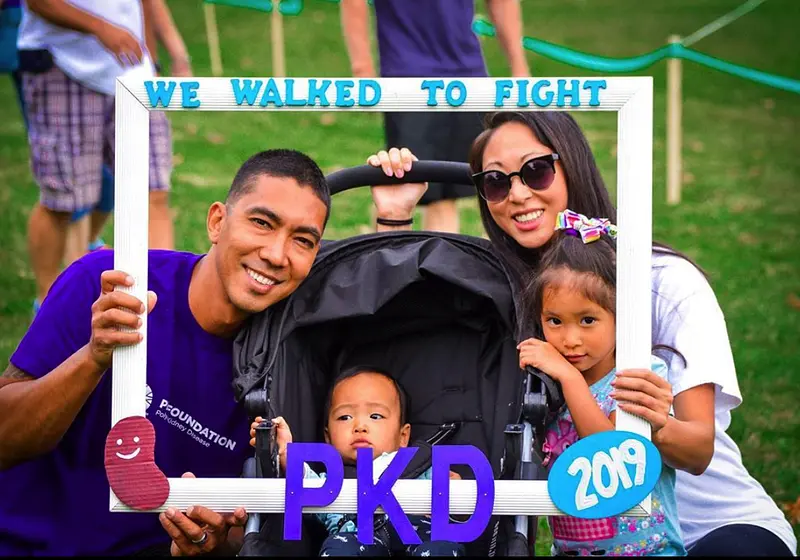A quick Google search will tell you that sickle cell anemia, or sickle cell disease, is considered rare. However, that does not take away any less of the importance of this important topic.
The Teen Magazine had the amazing opportunity to (virtually) have a talk with the Sickle Cell Disease Foundation, the first and oldest non-profit sickle cell organization with 61 years of service, with words from Deborah Green, Director of Health Education.
Through promoting and sharing awareness and word of sickle cell disease and of the Foundation's mission, we hope to inspire Gen Z and young adults.
Warriors are not born, they are made! 💪🏽♥️ How do you channel your inner warrior during difficult times? ⬇️ pic.twitter.com/VkxicTelAF
— Sickle Cell Disease Foundation (@SCDFoundation) February 7, 2021
Let us slide into your dms 🥰
Get notified of top trending articles like this one every week! (we won't spam you)What Exactly is a Sickle Cell Disease?
Sickle cell disease is a group of inherited red blood cell disorders that affects hemoglobin, the protein that carries oxygen through the body.
Normally, red blood cells are disc-shaped and flexible to move easily through the blood vessels. In sickle cell disease, the red blood cells are crescent or “sickle” shaped. These cells do not bend and move easily and can block blood flow to the rest of the body.
The blocked blood flow through the body can lead to serious problems, including stroke, eye problems, infections and episodes of pain, called pain crises.
Sickle cell disease is a lifelong illness. A blood and bone marrow transplant is currently the only cure for sickle cell disease, but there are effective treatments that can reduce symptoms and prolong life.

Take the Quiz: What is your IQ level?
Find out how smart you are by taking this quiz!
The Creation of SCDF
How did the Sickle Cell Disease Foundation come to be created?
The Sickle Cell Disease Foundation (formerly known as Sickle Cell Disease Research Foundation) was founded in 1957 by four African-American physicians: Browing Allen, MD, Wallace C. Marine, MD, Elmer Anderson, MD and Theodore Blevins, MD who were frequently asked about the medical management of sickle cell disease.
The Mission
What is the mission of the Sickle Cell Disease Foundation?
The Sickle Cell Disease Foundation provides life-enhancing education, services and programs for individuals living with sickle cell disease.
We broaden public awareness, deliver effective advocacy initiatives, and promote innovative therapies to ultimately find a cure.
Finding a Treatment
How does the organization help find a treatment or cure for the disease?
Historically, we provided funding for sickle cell disease research.
Currently, we work closely with researchers who are working on treatments and therapies for sickle cell disease. We encourage participation in clinical trials. We also assist as needed with the FDA to help move therapeutics through the process.
About The Advocacy Initiatives
Could you tell us more about the advocacy initiatives?
In California, the median age of death for individuals with SCD is 43 years old, which is well below the median age of death for individuals with SCD nationwide at 61 years and the U.S. general population at 84.5 years.
In 2019, we were instrumental in obtaining funding of $15 million from the state of California to create new services for Californians with SCD in four priority areas over the next three years.
These areas are to:
- Establish a network of sickle cell disease centers and community organizations in counties where the largest numbers of adults with SCD live to provide access to specialty care and improve quality of care for adults with SCD
- Support workforce expansion, among both clinicians and community health workers, to enhance care coordination
- Expand surveillance to monitor disease prevalence, healthcare utilization, complications, and costs
- Conduct outreach and awareness on SCD
About The Innovative Therapies
Please tell us more about the innovative therapies promoted by the Sickle Cell Disease Foundation!
The innovative therapies we currently promote are:
Hydroxyurea
An FDA-approved treatment that can increase the level of fetal hemoglobin. This production of fetal hemoglobin can enable the red blood cells to maintain their round shape therefore minimizing the frequency of pain episodes in persons with sickle cell disease.
Endari (L-glutamine)
A naturally-occurring amino acid that has been approved by the FDA to reduce the acute complications of sickle cell disease in adults and children 5 years and older.
Support
Networking with others who have sickle cell disease. Many times people with sickle cell disease believe they are the only persons with the disease and have not been in fellowship with others who may have similar stories to share.
Services and Programs
What are some of the services and programs for individuals affected by sickle cell disease?
Since 1967, we have offered an annual summer camp for children ages 7-14 with sickle cell disease.
Camp Crescent Moon allows children with sickle cell disease to participate in activities other children do at camp but in a medically supervised environment to manage an SCD complications that may arise. A team of volunteer nurses, doctors, camp counselors and others give their time to ensure this overnight opportunity for up to 100 children each year.
SC Crew Teen Transition Program is offered to teens with sickle cell disease between the ages of 15-19 to assist them with preparation of life as an adult with sickle cell disease. This transition is often overlooked but the medical care and needs are different for adults than it is for children.
Sickle Cell Disease Education and Hemoglobin Trait Counseling - We provide sickle cell disease education to the general community, the medical community as well as to individuals and families affected by sickle cell disease. Additionally we provide hemoglobin trait counseling to parents of babies identified with a hemoglobin trait such as sickle cell trait.
Sickle cell trait (SCT) is not a mild form of sickle cell disease. Having SCT simply means that a person carries a single gene for sickle cell disease (SCD) and can pass this gene along to their children. People with SCT usually do not have any of the symptoms of SCD and live a normal life. In addition to sickle cell trait, there are other hemoglobin traits people of childbearing ages should be aware of and tested for.
Sickle Cell Trait is not a type of Sickle Cell Disease. Sickle Cell Trait does not turn into Sickle Cell Disease. People with Sickle Cell Trait are generally healthy under ordinary circumstances. pic.twitter.com/5vfjkSmqd9
— Sickle Cell Disease Foundation (@SCDFoundation) January 31, 2021
The Biggest Accomplishment
What would be considered as the biggest accomplishment of the Sickle Cell Disease Foundation?
Our biggest accomplishment to date is the work we have done in California to impact the medical care for persons with sickle cell disease (response to question #5).
Building Public Awareness
How does the Sickle Cell Disease Foundation build public awareness?
We utilize various methods available to build public awareness. This includes, presentations and informational sessions (in person and virtually), health fairs, billboards and bus benches, social media posts on sickle cell disease and sickle cell trait.
It is imperative for people to know that sickle cell disease affects persons of every race and ethnic group.
Proud to Be With
What makes you the proudest to be with this organization?
What makes me proudest is the work we do to help our clients and our community. We keep the focus on persons with sickle cell disease at all times.
Sickle cell disease is a neglected disease and therefore not as well-known as less commonly found diseases like hemophilia and cystic fibrosis. While we are a small organization we work diligently to ensure quality health care for persons with sickle cell disease.
Events of Sickle Cell Disease Foundation
Are there any upcoming events that you could tell us about? If there is not, could you tell us about a recent event?
Since mid-February 2020, we have had to go virtual with all of our events. Upcoming events include SCD awareness sessions on the COVID19 Vaccine, newly FDA approved treatments available for SCD and Camp Crescent Moon.
What Can You Do?
As a teen and young adult-focused magazine, are there ways for Gen Z to get involved within the Sickle Cell Disease Foundation?
We would strongly encourage Gen Z to learn more about sickle cell disease. When people learn about how individuals with sickle cell disease are impacted, they are better able to make a difference in the quality of life of persons with SCD.
As previously stated, sickle cell disease is a forgotten disease but it affects hundreds of thousands of individuals in the US and millions nationwide. Hopefully by becoming aware, they can help friends, neighbors, coworkers, family members, etc.
Another recommendation for Gen Z is to learn about their hemoglobin status.
Millions of people have sickle cell trait or other hemoglobin traits and do not know about it. This puts them at risk of having a child with sickle cell disease. It takes two parents with sickle cell trait or one parent with sickle cell trait and the other with a different hemoglobin trait to have a child with sickle cell disease. There is a 25% chance with EACH pregnancy.
Most states test babies at birth for sickle cell disease. They also test for sickle cell trait. Their lab results should be available through their newborn screening program.
We encourage all persons born in California after February 29, 1990 to request their sickle cell disease newborn screening results from the state of California.
Keep Up!
Check out Sickle Cell Disease Foundation on Instagram at @scdfoundation.
They also have a Twitter, which is found at @scdfoundation.
Thank You
A big thank you to Sickle Cell Disease Foundation and to Deborah Green, Director of Health Education for these inspiring words.










